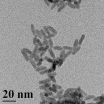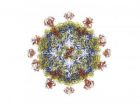(Press-News.org) Children who regularly participated in a Simon Says-type game designed to improve self-regulation – called the Head-Toes-Knees-Shoulders task – may have better math and early literacy scores.
The study found that the higher academic outcomes associated with the game, which emphasizes careful listening and following instructions, does not just benefit students in the United States, but also benefits children tested in Taiwan, China and South Korea.
More than 800 preschool age children ages 3-6 years old in the four countries participated in the study, which was just published in the journal Psychological Assessment.
Megan McClelland, an associate professor of human development and family science at Oregon State University, is an expert on self-regulation in children and has published numerous studies showing the importance of self-regulation – or a child's ability to listen, pay attention, follow through on a task and remember instructions – as a key predictor of academic achievement in later school years. McClelland also developed the Head-Toes-Knees-Shoulder task as a measurement tool to assess how well a child is able to self-regulate.
In previous studies, McClelland has already shown that the task can help children with low self-regulation skills become better at self-regulation, effectively raising their academic achievement.
In this study, McClelland, lead author Shannon Wanless with the University of Pittsburgh, who did the research as part of her dissertation work at OSU, and their colleagues, wanted to find out if the Head-Toes-Knees-Shoulder task would predict academic gains in countries already known to have stronger self-regulation than the U.S.
"Beyond demographic variables or teacher's expectations, we found that the children in all the countries who performed well on the task did significantly better in math, vocabulary and early literacy," McClelland said. "It shows that beyond cultural factors, self-regulation is important for early academic success."
McClelland and Wanless' study showed that preschool and kindergarten-age children who scored higher on the Head-Toes-Knees-Shoulder task were more than three months ahead of their peers in early literacy. Likewise, their peers in Taiwan, China and South Korea showed similar results, with the most dramatic result showing Chinese youngsters who did well on the self-regulation task performing more than four months ahead of their classmates on math.
McClelland said this Asian study is not an anomaly – she and her colleagues have conducted studies in European countries, and have found similar results to this Asian study.
In addition, a new study that McClelland and OSU alumna Shauna Tominey conducted of 65 preschool-age children in Oregon, just published in the journal Early Education and Development, found that children who started the year with low levels of self-regulation saw significant gains in self-regulation as the year went on after doing a variety of "circle-time" games in the classroom. These games are physically-active games that, like the Head-Toes-Knees-Shoulder task, ask children to obey rules, listen, and demonstrate self-control. Importantly, children participating in the games also made significant gains in early literacy over the school year.
This gave the researchers preliminary evidence that an intervention using these self-regulation games can work, especially with lower-income children who are at higher risk of starting school with poorer self-control. In the fall, McClelland and her research group move on to Salem, Ore. where they will administer the intervention to Head Start preschool classes in the Salem-Keizer school district.
"Educators are intensely interested in a measurement tool that assesses self-regulation, is easy to use, and requires little training or materials," McClelland said.
She said since her work first became publicized, she has heard from teachers all over the country wanting to use the Head-Toes-Knees-Shoulder task. Before that happens on a large scale however, McClelland said she needed to validate and adapt the task for teachers and other practitioners to use.
McClelland has received a $1.6 million grant from the U.S. Department of Education to do a four-year study to measure, evaluate and refine the Head-Toes-Knees-Shoulder task. If successful, the task could be implemented by educators and school districts across the country as a way to measure whether preschool-age children are ready to enter elementary school.
"Although many children enter kindergarten ready to learn, a large number of children start school already behind their peers," McClelland said. "As early as kindergarten, they've become the problem child who can't pay attention, can't focus and doesn't follow instructions. This can lead to becoming a problem in the classroom, which then leads to negative attention. And by the end of their kindergarten year, they are more likely to disengage and say they don't like school."
INFORMATION: END
Alexandria, VA, USA – The microblogging service Twitter is a new means for the public to communicate health concerns and could afford health care professionals new ways to communicate with patients. With the growing ubiquity of user-generated online content via social networking Web sites such as Twitter, it is clear we are experiencing a revolution in communication and information sharing. In a study titled "Public Health Surveillance of Dental Pain via Twitter," published in the Journal of Dental Research—the official publication of the International and American Associations ...
Those solar panels on top of your roof aren't just providing clean power; they are cooling your house, or your workplace, too, according to a team of researchers led by Jan Kleissl, a professor of environmental engineering at the UC San Diego Jacobs School of Engineering.
In a study in an upcoming issue of the journal Solar Energy, Kleissl and his team published what they believe are the first peer-reviewed measurements of the cooling benefits provided by solar photovoltaic panels. Using thermal imaging, researchers determined that during the day, a building's ceiling ...
(Garrison, NY) The Esther A. and Joseph Klingenstein Fund awarded The Hastings Center a $159,000 grant to explore the ethical, scientific, and legal issues on using animals in medical research and on the prospects for using alternatives to animal models.
The project comes at a time when arguments about animal experimentation are changing in fundamental and profound ways. Scientific journals and some biomedical researchers are calling for increased public engagement and education about animal research. The longstanding view that one is either pro-medical progress or pro-animal ...
A simple eight-question survey administered soon after injury can help predict which of the 30 million Americans seeking hospital treatment for injuries each year may develop depression or post-traumatic stress, report Therese S. Richmond, PhD, CRNP, associate professor at the University of Pennsylvania School of Nursing, and her colleagues in General Hospital Psychiatry.
"Depression and PTSD exert a significant, independent, and persistent effect on general health, work status, somatic symptoms, adjustment to illness, and function after injury," the authors wrote, also ...
In a study published recently in the journal Science Signaling Van Andel Research Institute (VARI) scientists demonstrate on the molecular level how the anti-malaria drug chloroquine represses inflammation, which may provide a blueprint for new strategies for treating inflammation and a multitude of autoimmune diseases such as arthritis, multiple sclerosis, and certain cancers.
Chloroquine is a widely used anti-malaria drug that inhibits the growth of parasites. For decades, chloroquine and its derivative amodiaquine have also been used as anti-inflammation drugs to treat ...
Business users take advantage of trial software so they can understand exactly what they are purchasing, but they still have to buy support plans on blind faith. One company is changing that. MadCap Software, Inc. (http://www.madcapsoftware.com), the leader in multi-channel content authoring and a showcase company for Microsoft (NASDAQ: MSFT) Visual Studio and Microsoft XPS, today announced that every 30-day free trial version of its technical communications software now also comes with a 30-day free trial of MadCap's Gold Level technical support. Gold Level support during ...
Research published recently in PLoS One delivers new insight about rapid toxin evolution in venomous snakes: pitvipers such as rattlesnakes may be engaged in an arms race with opossums, a group of snake-eating American marsupials. Although some mammals have long been known to eat venomous snakes, this fact has not been factored into previous explanations for the rapid evolution of snake venom. Instead, snake venom is usually seen as a feeding, or trophic, adaptation. But new molecular research on snake-eating opossums by researchers affiliated with the American Museum of ...
BUFFALO, N.Y. -- Quantum dots made from cadmium and selenium degrade in soil, unleashing toxic cadmium and selenium ions into their surroundings, a University at Buffalo study has found.
The research, accepted for publication in the journal Environmental Science and Technology, demonstrates the importance of learning more about how quantum dots -- and other nanomaterials -- interact with the environment after disposal, said Diana Aga, the chemistry professor who led the study.
Quantum dots are semiconductor nanocrystals with diameters of about 2 to 100 nanometers. ...
Howard H. Collens, attorney at the probate and estate planning law firm of Galloway and Collens, PLLC, spoke at a professional training seminar on The Probate Process From Start to Finish for Paralegals, sponsored by the Institute for Paralegal Education (IPE).
The seminar, which took place on June 7, 2011, aimed to increase the understanding and effectiveness of paralegals, legal assistants and legal secretaries during the legal process which may be required after a person dies. Howard H. Collens spoke about topics related to the probate process including the ethical ...
HOUSTON -- (July 18, 2011) -- Rice University scientists have defined the structure -- down to the atomic level -- of a virus that causes juvenile diarrhea. The research may help direct efforts to develop medications that block the virus before it becomes infectious.
The new paper by Professor Yizhi Jane Tao, postdoctoral researcher Jinhui Dong and their colleagues was published in today's online edition of the Proceedings of the National Academy of Sciences.
Tao's Rice lab specializes in gleaning fine details of viral structures through X-ray crystallography and computer ...



